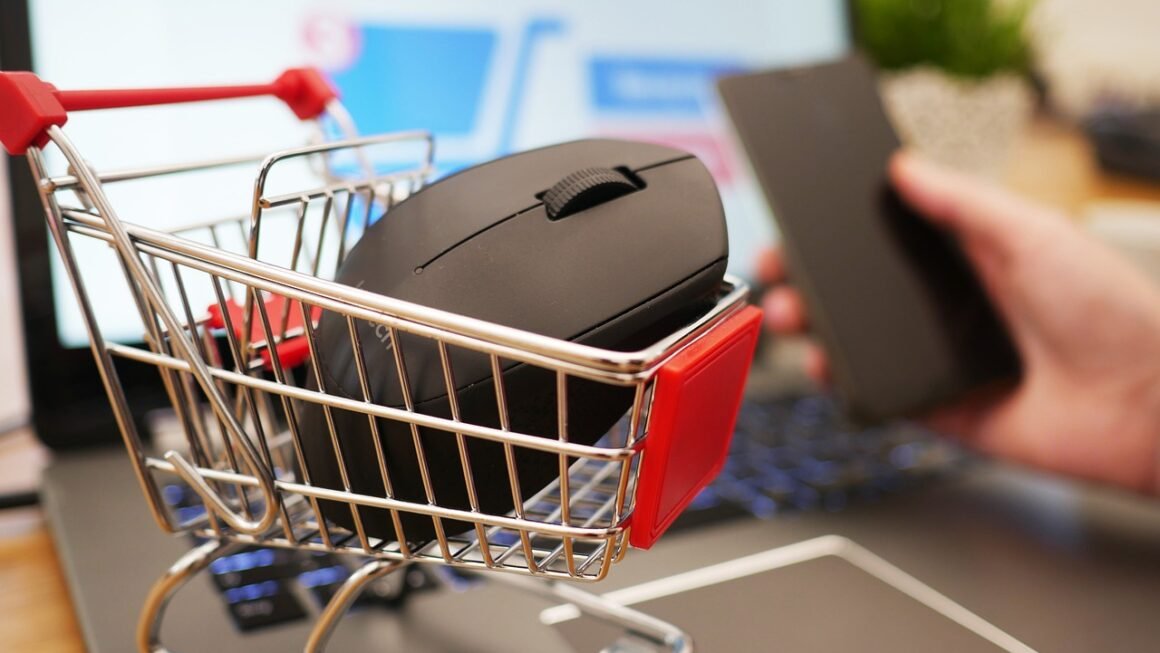The world of retail is rapidly evolving, and at the heart of this transformation lies mobile commerce, or m-commerce. More than just shopping on your phone, m-commerce encompasses the entire ecosystem of buying and selling goods and services through wireless handheld devices like smartphones and tablets. This blog post will explore the intricacies of mobile commerce, delving into its benefits, strategies, and the future it holds for businesses and consumers alike.
What is Mobile Commerce?
Defining Mobile Commerce
Mobile commerce, or m-commerce, is the buying and selling of goods and services through mobile devices, such as smartphones and tablets. It leverages wireless technologies like 4G, 5G, and Wi-Fi to provide a seamless and convenient shopping experience. M-commerce encompasses a wide range of activities, including:
- Online shopping through mobile apps and websites
- Mobile banking and payments
- Digital wallets and contactless payments
- In-app purchases
- Mobile ticketing
- Location-based services and marketing
M-Commerce vs. E-Commerce
While often used interchangeably, m-commerce and e-commerce are distinct. E-commerce encompasses all online transactions conducted via any device, including desktop computers. M-commerce, on the other hand, is a subset of e-commerce specifically focused on transactions conducted on mobile devices. The key difference lies in the device used for the transaction.
Benefits of Embracing Mobile Commerce
Increased Accessibility and Convenience
M-commerce provides unparalleled accessibility and convenience for consumers. They can shop anytime, anywhere, as long as they have a mobile device and an internet connection. This is particularly beneficial for busy individuals who may not have the time to shop in physical stores or access a desktop computer.
- Example: A commuter can browse and purchase groceries during their train ride home, saving time and effort.
- Statistic: Studies show that a significant percentage of online shoppers prefer using their mobile devices due to the convenience.
Enhanced Customer Engagement
Mobile devices offer numerous opportunities for enhanced customer engagement through features like push notifications, personalized recommendations, and interactive content. Businesses can leverage these features to create a more engaging and personalized shopping experience.
- Example: Sending push notifications about flash sales or new product arrivals can drive immediate traffic to your mobile store.
- Tip: Use location-based services to offer special deals to customers when they are near your physical store, encouraging them to visit.
Expanded Market Reach
By offering a mobile-friendly shopping experience, businesses can reach a wider audience, including mobile-first consumers who primarily use their smartphones for online activities. This can lead to increased sales and brand awareness.
- Example: A small business can expand its customer base beyond its local area by offering a mobile app that allows customers to shop from anywhere.
- Data Point: Mobile commerce sales are consistently growing year-over-year, indicating a strong trend towards mobile shopping.
Streamlined Payment Processes
Mobile commerce facilitates streamlined payment processes through various mobile payment options, such as digital wallets (Apple Pay, Google Pay, Samsung Pay), mobile banking apps, and one-click checkout. This reduces friction in the purchasing process and increases conversion rates.
- Example: Offering Apple Pay as a payment option allows customers to quickly and securely complete their purchase with just a fingerprint or facial recognition.
- Benefit: Faster checkout times translate to happier customers and reduced cart abandonment.
Strategies for Successful Mobile Commerce Implementation
Mobile-First Website Design
Ensure your website is fully responsive and optimized for mobile devices. This means that the website should automatically adjust to fit the screen size of any mobile device, providing a seamless and user-friendly experience.
- Tip: Use mobile-friendly templates and frameworks that are specifically designed for mobile commerce websites.
- Example: Conduct thorough testing on various mobile devices to ensure your website functions correctly and looks appealing on all screens.
User-Friendly Mobile App Development
Consider developing a dedicated mobile app to provide a more engaging and personalized shopping experience. A well-designed app can offer features like push notifications, personalized recommendations, and exclusive deals.
- Key Features: Easy navigation, secure checkout, personalized product recommendations, and order tracking are essential for a successful mobile app.
- Example: Amazon’s mobile app is a prime example of a successful mobile commerce app that offers a seamless shopping experience with advanced features like visual search and augmented reality.
Effective Mobile Marketing Strategies
Implement targeted mobile marketing strategies to reach your target audience and drive traffic to your mobile store. This includes:
- SMS Marketing: Send text message alerts about sales, promotions, and new product arrivals.
- Push Notifications: Utilize push notifications to re-engage users and encourage them to complete purchases.
- Location-Based Marketing: Offer targeted deals and promotions to customers based on their location.
- Mobile SEO: Optimize your website for mobile search to improve visibility in mobile search results.
Secure Payment Gateway Integration
Ensure that your mobile commerce platform integrates with secure payment gateways to protect customer payment information. This is crucial for building trust and preventing fraud.
- Best Practices: Use SSL certificates to encrypt data transmitted between the customer’s device and your server. Comply with PCI DSS standards to ensure the security of credit card data.
- Example: Stripe and PayPal are popular payment gateways that offer secure and reliable payment processing for mobile commerce.
The Future of Mobile Commerce
Augmented Reality (AR) and Virtual Reality (VR)
AR and VR technologies are poised to revolutionize the mobile commerce experience by allowing customers to visualize products in their own environment before making a purchase.
- Example: An furniture retailer could use AR to allow customers to see how a sofa would look in their living room before buying it.
- Benefit: Reduced returns and increased customer satisfaction.
Artificial Intelligence (AI) and Machine Learning (ML)
AI and ML are being used to personalize the mobile shopping experience by providing personalized product recommendations, targeted marketing, and chatbots for customer service.
- Example: An e-commerce platform could use AI to analyze a customer’s past purchases and browsing history to recommend products they are likely to be interested in.
- Advantage: Increased conversion rates and improved customer loyalty.
Voice Commerce
Voice commerce, or v-commerce, is the future of mobile commerce, allowing customers to make purchases using voice commands through virtual assistants like Alexa and Google Assistant.
- Example: A customer could say, “Alexa, order me a pizza from Domino’s.”
- Opportunity: Convenient and hands-free shopping experience.
Mobile Wallets and Contactless Payments
Mobile wallets and contactless payments are becoming increasingly popular, offering a secure and convenient way to pay for goods and services.
- Example: Using Apple Pay or Google Pay to make a purchase at a physical store.
- Trend: Increased adoption of contactless payments due to the COVID-19 pandemic.
Conclusion
Mobile commerce is no longer a trend but a necessity for businesses looking to thrive in today’s digital landscape. By embracing mobile-first strategies, optimizing the mobile shopping experience, and leveraging emerging technologies, businesses can unlock new opportunities for growth, engagement, and customer satisfaction. The future of retail is undoubtedly mobile, and businesses that adapt and innovate in this space will be best positioned for success.



